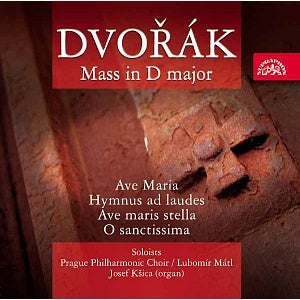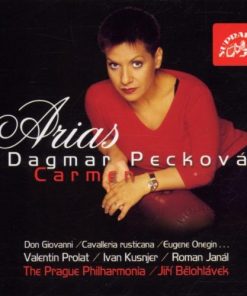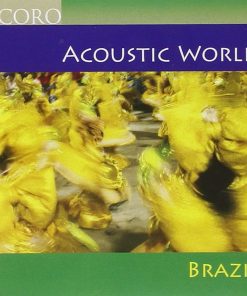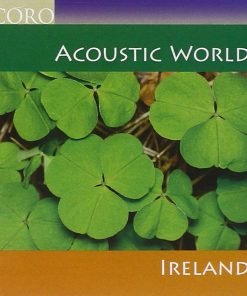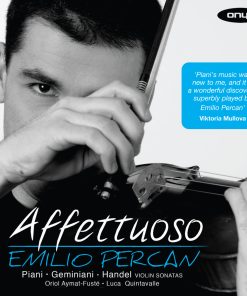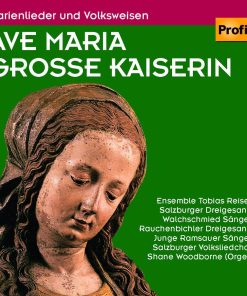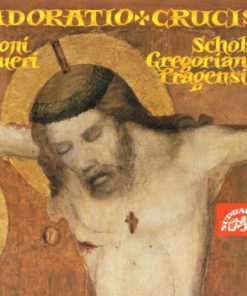DVORAK: Mass in D Major; Ave Maria; Ave Maris Stella – Matl, Prague Philharmonic Choir SUPRAPHON
$ 3,99 $ 2,39

If in his symphonic, chamber and song output, Antonín Dvořák (1841 – 1904) gives out joy as the quintessential believer in life’s positive aspects, in his sacred compositions he can be just as convincing in touching his audiences by the very depth of the inner immersion and the total dedication with which he concentrates whenever inspired by an ecclesiastic text. (It was likely not accidental that towards the end of his life Dvořák showed systematic interest in the study of Latin.) One of the finest artistic proofs of the composer’s unostentatious religious feeling, which was essentially identical with the profound, sincere and unadulterated faith held by the man of peasant stock that he was, the firm trust in divine justice and life after death, faith which became a natural attribute of Dvořák’s existence, is his Mass in D major, written in 1887 to mark the consecration of the manorial chapel at Lužany near the town of Přeštice.
This major work is coupled here with several small-scale sacred compositions, written at Sychrov.

Antonín Dvořák
Mass for soloists, mixed choir and organ in D major, Op. 86 (B. 153; 1887)
1. Kyrie. Andante con moto 07:10
2. Gloria. Allegro vivo 08:49
3. Credo. Allegro moderato 12:37
4. Sanctus. Allegro maestoso (att.) 02:11
5. Benedictus. Lento 06:42
6. Agnus Dei. Andante 05:25
Antonín Dvořák
7. Ave Maria for Contraalto and Organ, Op. 19B (B 68) 02:59
Antonín Dvořák
8. Hymnus ad laudes in festo Sanctissimae Trinitatis for Contralto and Organ, sine Op. (B 82) 02:42
Antonín Dvořák
9. Ave maris stella for Baritone and Organ, Op. 19A (B 95A) 03:24
Antonín Dvořák
10. O sanctissima for Contraalto, Baritone and Organ, Op. 19A (B 95B) 02:52
Fast Shipping and Professional Packing
Due to our longstanding partnership with UPS FedEx DHL and other leading international carriers, we are able to provide a range of shipping options. Our warehouse staff are highly trained to pack your goods exactly according to the specifications that we supply. Your goods will undergo a thorough examination and will be safely packaged prior to being sent out. Everyday we deliver hundreds of packages to our customers from all over the world. This is an indication of our dedication to being the largest online retailer worldwide. Warehouses and distribution centers can be located in Europe as well as the USA.
Orders with more than 1 item are assigned processing periods for each item.
Before shipment, all ordered products will be thoroughly inspected. Today, most orders will be shipped within 48 hours. The estimated delivery time is between 3-7 days.
Returns
The stock is constantly changing. It's not entirely managed by us since we are involved with multiple parties such as the factory and our storage. The actual stock can fluctuate at any time. Please understand it may happen that your order will be out of stock when the order is placed.
Our policy is valid for 30 days. If you haven't received your product within 30 days, we're not able to issue either a return or exchange.
You are able to return a product if it is unused and in the same condition when you received it. It must also still remain in the original packaging.
Related products
MUSIC CD
MUSIC CD
MUSIC CD
